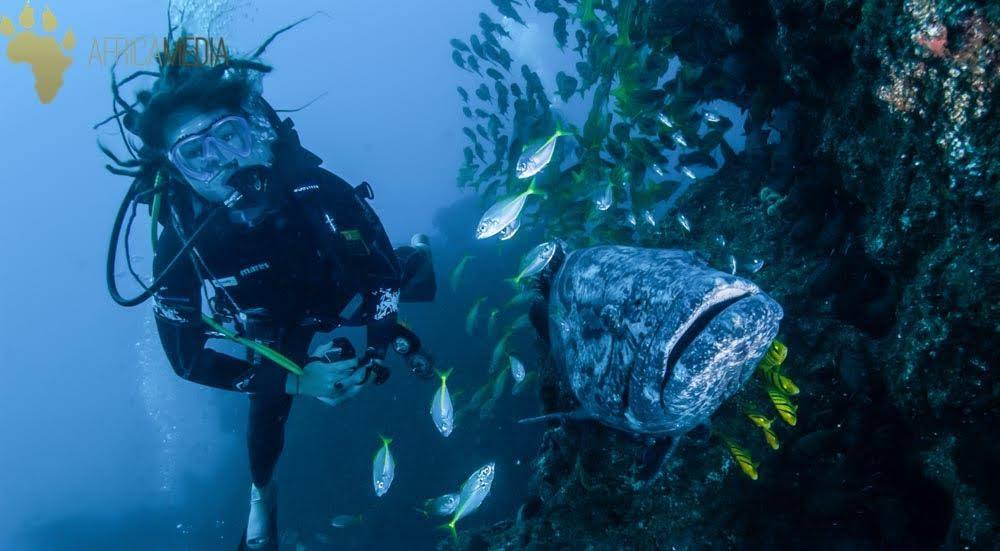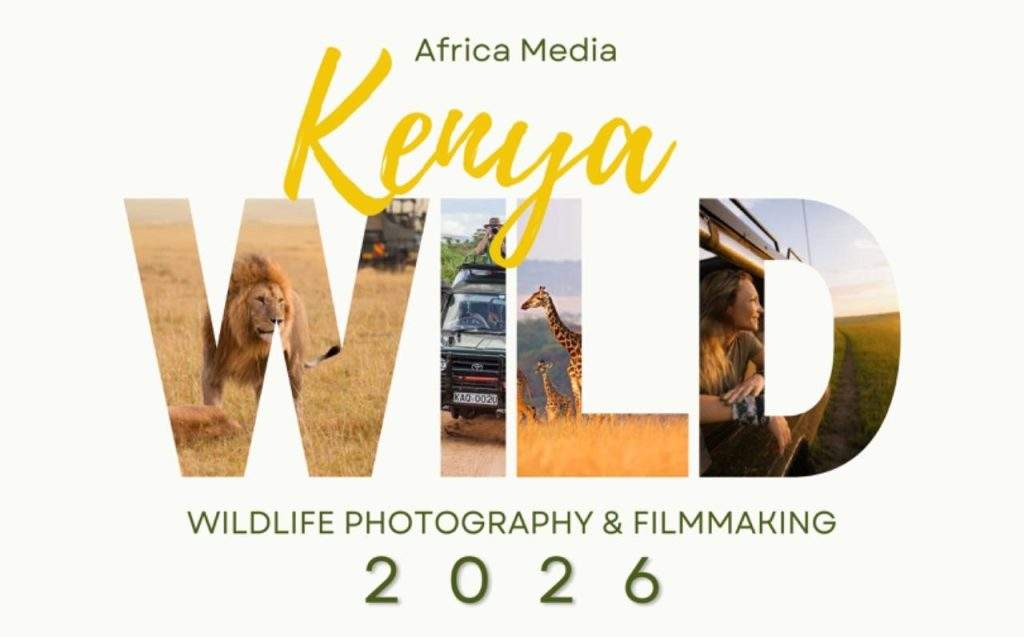
How to become an underwater videographer
Video is one of the most effective ways to document marine life. It portrays the beauty of the underwater world in a visual and auditory way. To become an underwater videographer is to capture and magnify all of the natural wonders that lie beneath the waves. In addition, a lot of filmmakers use their underwater videos for the benefit of marine conservation, an important worldwide topic of discussion and concern. In order to pursue this specialised career, there are a few things you need to consider.
Build professional skills as an underwater videographer on the tropical reefs of Southern Africa
What you need in order to become an underwater videographer
The qualification
The only qualification you truly need to become an underwater videographer, is a scuba qualification (open water certification, at least). After this, you can do your own research, buy the camera equipment you need and start filming. That’s one option you could follow. The other option, if you’d like a more in-depth introduction and a foot in the door to the industry, is to attend a course. PADI offers an underwater videography course, and so does Africa Media. There are other companies as well that will be able to guide you in the basics of underwater videography.
Sometimes, film makers have a background or experience in film school, cinematography, editing or documentary film making and want to specialise in underwater video. Other times, experienced divers decide to pick up a camera and start filming the marine life they encounter. The options are varied, but all you need to become an underwater videographer is a camera, an interest in the field and the desire to gain experience. If you have this, then you can consider which additional qualification(s) would benefit you.
The equipment
In order to start shooting underwater video, you have to get a camera. Some underwater videographers are perfectly happy with a GoPro, as there are several advanced models available these days. However, most professional underwater videographers prefer working with dSLR cameras and underwater housings, waterproof cameras or video cameras. When starting out, try out an underwater housing for your smartphone first or get a GoPro. After that, you can decide whether you want to invest in a bigger, more professional dSLR or video camera.
In addition to the camera, you will need to purchase and maintain your own scuba equipment. Underwater videographers do a lot of diving and it’s best to have your own gear so that you can go on a film shoot within your own schedule. Other possible underwater video equipment options to consider are strobe lights, monitors and, of course, editing programs. Read more about the camera equipment you need to become an underwater videographer here.
The experience
As you develop yourself in the field of underwater videography, you’ll also have to build your confidence as a camera operator and as a diver. Firstly, you need to be confident as a diver in order to control your buoyancy, to determine the amount of filming time you have and to conduct yourself correctly in the marine environment. Secondly, you need to learn how to use your camera and other equipment in the best way. Especially if you don’t have any previous experience in filming. Lastly, you will also need to educate yourself on the basics of film editing. Choose an editing program that is user-friendly and professional, and teach yourself to edit video footage on it effectively. Most film makers prefer Adobe Premiere Pro or Adobe Final Cut Pro.
Download FREE eBook featuring 18 International scholarships to fund overseas experience travel
What you have to do in order to become an underwater videographer
Commit
Taking on a new career path takes dedication and lots of internal motivation. When you decide that you want to become an underwater videographer, you need to fully commit to it. Underwater videography will become a part of your lifestyle as well as your career. Even being a diver is a full-time thing, because you need to do it often enough to keep your qualification. Underwater videography is a specialised field. Therefore, it will require 100% of your time and investment in order to gain the experience you need.
Be interested in marine life
Educate yourself on marine conservation and have an interest in the underwater world. You’re going to capture marine life and tell the ocean’s story on film. So, you need to have a desire to understand and appreciate it.
Be interested in film
Maybe you’re already a filmmaker, or someone with an interest in wildlife documentaries. If not, it’s good to develop an active interest in the film industry. Watch as many nature and underwater documentaries as you can. Educate yourself on the best documentaries and filmmakers in the industry. This will give you insight into your own filming style and the subjects you can focus on when filming. Seeing what other filmmakers in the same field are doing also provides you with inspiration and new ideas.
Reach out
Communicate and network with other underwater videographers. Build a contact base in the industry of underwater videography. Ask established videographers for advice and mentorship. In addition, collaborate with other underwater videographers where possible. Join in on film shoots as a camera operator or assistant. Being able to market yourself is a crucial skill you’ll need in order to become an underwater videographer.
The more you learn from others, the better underwater videographer you’ll become. Join Facebook groups and societies. Make friends with those already established in the industry. As soon as you join the international community of underwater videographers, your reputation will grow. Then, people will start recommending you for upcoming underwater video shoots.
Initiailly, be happy with a low income
When you’re starting out as an underwater videographer, the first thing you want is exposure. You need to be willing to work for free or for very little compensation at the beginning. Use each opportunity to gain experience and exposure. As with all careers, take what you can get. Sign up for internships and assistant jobs. Observe everything you can during each underwater shoot you are able to join. You will eventually start building a word-of-mouth reputation and you’ll reach a level where you’ll start receiving compensation for your hard work. Be patient and committed enough to reach this level.
Be professional
To become an underwater videographer, you need to fully act the part from the beginnning – even when starting out on your own. Stick to your dive plan and production schedule. Conduct yourself in a professional manner during each shoot, especially if you’re working with other divers or videographers. Take care of your camera and scuba equipment properly. Have good communication and organisation skills. Be considerate towards the marine ecosystem when you’re diving. Do enough research on your film topic and the dive site before going on a shoot. Be professional when you’re filming, editing, sharing your work and networking with others. Most importantly, never stop learning and developing.
There is more than one way to become an underwater videographer. You need to determine what type of videographer you’d like to become. According to that, you can determine which qualifications and investments will benefit you most. Make sure that you keep these tips in mind on your journey.
If this awesome career is beckoning you to give it a chance, why not check out our underwater videography program? You could spend a month in the crystal clear waters of either Mozambique or South Africa.

Blogger Profile - Rouxne van der Westhuizen
Rouxne has an Honours degree in journalism and media studies. She specialises in wildlife conservation writing, travel journalism and blogging.
Kickstart your wildlife media career!
Find your perfect wildlife media speciality program




